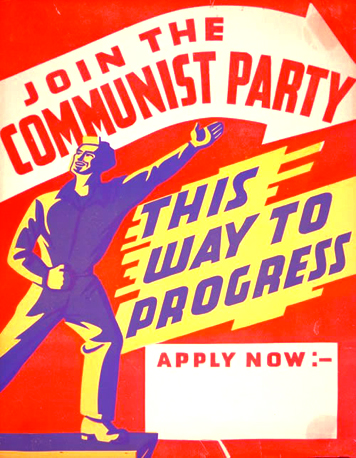
A reader's review of Diana West's new book American Betrayal, writes:
"Heavily documented, her thesis is that the US didn't win World War II, the Soviets did with massive help from the British Commonwealth and the US. In fact, this was the conclusion of M. Stanton Evans and Herbert Romerstein's book of 2012, Stalin's Secret Agents: The Subversion of Roosevelt's Government. On p. 199 the authors state that "It's evident that the real victors of World War II weren't the United States and Britain, France or China, but the Soviet Union and its world wide web of vassals, satellites, and agents."
This is to confuse two things which should be kept distinct:
1) winning a war
2) losing a war, but managing to attain critical advantages after the defeat and through circumstances of its aftermath.
Thus, the Soviet Communist infiltrations of America and other parts of the West post-WW2 would obviously not have been necessary, had the U.S.S.R. won the Cold War (beginning, of course, in 1946). Are that reviewer, and Diana West, and M. Stanton Evans indulging in rhetorical hyperbole? It doesn't seem so. But then, one wonders what sense such a "victory" has. They'd have to explain how it is that a Communist victory as they claim it has transpired would be different from a full-blown victory at the end of WW2. And, among many other things, they'd have to explain Ronald Reagan.
I don't think this is a quibble, since I think Diana West may tend to exaggerate a certain aspect of the entire arc of the Cold War. And part of that exaggeration finds nourishment in that curiously delimited and simplistic view of PC MC and of Leftism (two distinct movements) which seems characteristic of some conservatives, and of those in the Counter-Jihad. When we find a major 16th-century philosopher and politician, Montaigne for example, purveying maxims and axioms strikingly similar to PC MC, how can we say that Communist agents are to blame? But one doesn't have to go back as far as Montaigne; one could simply go back to the 18th century Enlightenment, long before Marx was even in diapers.
Note: I am not saying that Communism's infiltration is not pernicious. Only that it has had to exploit a pre-existing sociopolitical culture in the West (and indeed, it grew out of that pre-existing culture in part; it certainly didn't drop from Neptune). And thus, an important part of the way back to our former rationality has to tackle, and unravel, the right thing -- not some exaggerated and misleading and simplistic version of it.
No comments:
Post a Comment